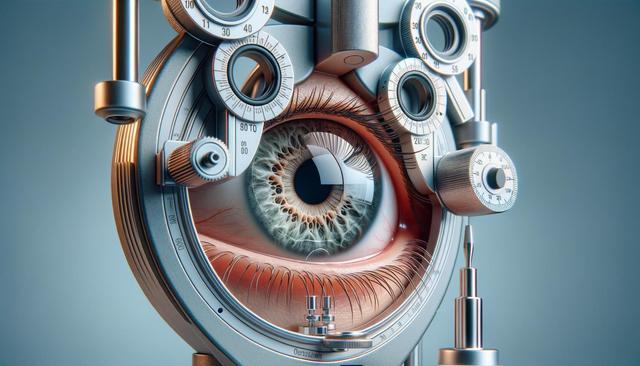Why Regular Eye Exams Are Essential for Your Health
Scheduling a comprehensive eye exam is one of the most important steps you can take to protect your vision and overall health. Many eye conditions develop gradually and without noticeable symptoms, making early detection crucial. A visit to an optometrist near you can help detect issues such as glaucoma, cataracts, macular degeneration, and even systemic conditions like diabetes or hypertension. Regular exams are not only about checking your prescription but also about maintaining your eye health long-term.
Eye exams are recommended annually or at least every two years, depending on your age, health history, and risk factors. Children, seniors, and individuals with chronic conditions may require more frequent visits. During a routine exam, eye doctors will assess your:
- Visual acuity (sharpness of vision)
- Eye muscle movement and coordination
- Peripheral vision
- Eye pressure and internal eye health
Early diagnosis often leads to more effective treatment and better outcomes. Don’t wait for symptoms to appear—proactive vision care starts with routine check-ups.
Choosing Between an Optometrist and an Ophthalmologist
When searching for eye care, understanding the difference between an optometrist and an ophthalmologist can help you make the right choice. Both are eye doctors, but they serve different roles in vision care. An optometrist near you is a trained professional who can conduct eye exams, prescribe corrective lenses, and diagnose common eye conditions. They are often your first stop for routine care and vision correction.
On the other hand, an ophthalmologist is a medical doctor who specializes in advanced eye care, including surgery and the treatment of more complex conditions. You may be referred to an ophthalmologist if your optometrist identifies issues requiring specialized intervention.
General guidelines for choosing your provider:
- Visit an optometrist for routine eye exams and prescriptions.
- See an ophthalmologist for surgical procedures or complex eye diseases.
- Consider a practice that offers both services for more comprehensive care.
Knowing who to consult ensures you get the right level of care for your specific needs.
How to Find Trustworthy Eye Doctors Near You
Finding reliable and highly rated eye doctors in your area doesn’t have to be difficult. Thanks to online resources and patient reviews, you can now make informed decisions based on real experiences. Start by searching for terms like ‘optometrist near me’ or ‘ophthalmologist in [your city]’ to see who is available locally. Pay attention to patient feedback, years of experience, and the range of services offered.
Here are a few tips to help you choose a reputable provider:
- Check for credentials and board certifications.
- Look for clinics that offer modern diagnostic equipment and up-to-date treatments.
- Read online reviews and testimonials for patient satisfaction insights.
- Ask friends or family for referrals and personal recommendations.
Most importantly, schedule a consultation to see if the doctor’s communication style and approach align with your expectations. A good eye care provider will make you feel comfortable, answer your questions, and provide clear guidance on your vision health.
What to Expect During Your Eye Exam
If you haven’t had an eye exam in a while, knowing what to expect can help ease any anxiety. A standard eye exam is a painless, non-invasive procedure that typically lasts between 30 minutes and an hour. During your visit, eye doctors will perform a series of tests to evaluate your vision and eye health. These include reading eye charts, checking your peripheral vision, and using light or drops to examine the interior of your eyes.
Common components of an eye exam include:
- Refraction test to determine your prescription
- Slit lamp examination to view the front of your eye
- Retinal imaging or dilation to assess the back of the eye
- Tonometry to measure eye pressure
After the exam, your optometrist or ophthalmologist will discuss the results and recommend any necessary treatments or follow-up appointments. If corrective lenses are needed, you’ll be guided through choosing suitable frames or contact lenses tailored to your lifestyle and vision needs.
Maintaining Healthy Vision Through Preventative Care
Vision care doesn’t stop at the eye doctor’s office. Practicing good habits at home can go a long way in preserving your eyesight. Eating a balanced diet rich in vitamins A, C, and E, staying hydrated, and wearing UV-protective sunglasses are all simple yet effective ways to support eye health. Regular physical activity and managing chronic conditions like diabetes also contribute significantly to maintaining good vision.
Prevention tips include:
- Avoid prolonged screen time or take frequent breaks using the 20-20-20 rule (every 20 minutes, look at something 20 feet away for 20 seconds).
- Wear protective eyewear during sports or when working with hazardous materials.
- Keep your prescriptions up to date to avoid eye strain.
- Don’t skip your regular eye exam—even if your vision seems fine.
Consistently following these practices and staying in touch with your eye care provider helps ensure your vision remains clear and healthy for years to come.
Conclusion: Take the First Step Toward Better Vision Today
Taking care of your eyesight begins with finding the right vision care provider. Whether you need a routine eye exam, updated lenses, or specialized treatment, working with experienced eye doctors can make a significant difference in your overall eye health. By understanding your options and staying proactive about eye care, you’re investing in a future of clear, comfortable vision. Start by searching for an optometrist near you or consulting a trusted ophthalmologist for more advanced needs. Your eyes deserve expert attention—make your next appointment today.




Leave a Reply